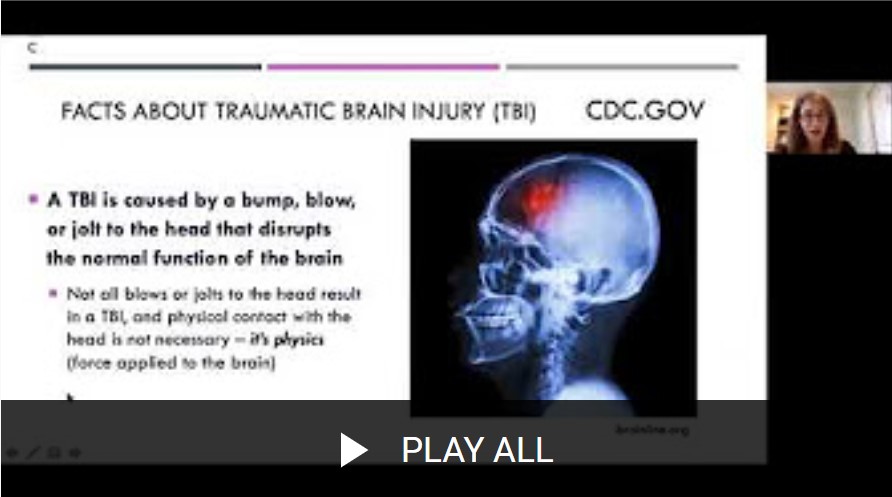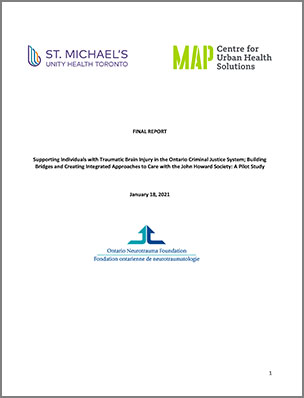Research has shown a strong association between traumatic brain injury (TBI) and incarceration.
In Ontario, 50% of all incarcerated men and 38% of incarcerated women have a history of TBI; yet the prevalence in the general population is less than 10%. Additionally, many people involved in the criminal justice system have experienced multiple TBIs. A recent Ontario study found that a sample of adults with history of justice involvement had an average of 3.9 TBIs, which is consistent with research from the United States. This is particularly relevant as the effects of TBI, even ‘mild’ concussions, are cumulative.
TBI can lead to transient or permanent changes in brain function causing cognitive, communication, and emotional/behavioural problems such as challenges with attention, memory, new learning, processing information and conversation, and abstract thinking, as well as challenges managing anger and reading others’ emotions.
Re-entering the community after incarceration can be a challenging process, and TBI-related impairments can make this process even more difficult and make people vulnerable to re-incarceration.
About This Project
As part of a research project in partnership with the John Howard Society of Toronto (JHS-T), we consulted with JHS-T staff and found that they wanted training to better support clients with a history of TBI. This need was more urgent in the context of the COVID-19 pandemic.
JHS-T is a is a non-profit organization dedicated to helping men who have been in conflict with the law by delivering individualized, integrated support services and programs. Many of JHS-T’s clients have a history of suspected or diagnosed TBI.
Since the onset of the pandemic, JHS-T staff reported increased anger, anxiety, and impulse control problems among their clients, who are facing unprecedented challenges and stress as they transition from prison to the community during COVID-19.
In response, we developed and implemented a formal education program to train all JHS-T staff about TBI, how to screen for TBI, and how to use evidence-based strategies to support and work effectively with clients with a history of suspected or confirmed TBI.
Learn more about this project on the Ontario Neurotrauma Foundation website.
About the Training
This formal training program is adapted from:
- A series of competencies developed by a panel of international clinician-researchers and brain injury advocacy organizations (e.g. National Association of State Head Injury Associations of America and the University of Oregon Centre for Brain Injury Research and Training) with a focus on the intersection of TBI and the criminal justice system.
- Findings from a systematic review regarding Communication Partner Training for people with TBI. This review showed that providing education about the communication challenges experiences by people with TBI and providing specific training and strategies to communication partners can improve communication interactions and outcomes.
- Discussions with Amber Kellen, the Director of Community Initiatives, Policy and Research, JHS-T.
The training is focused on how to:
- Effectively screen clients for TBI, using the HELPS brain injury screening tool
- Learn more about TBI
- Understand the impact of TBI on people’s behaviour, thinking, and communication
- Help staff assist clients to manage heightened anger, emotion, and challenges with impulse control
- Connect clients with specialized TBI resources and provide strategies for more effective case management
- Learn about community-based resources and services from the Brain Injury Society of Toronto and the Ontario Brain Injury Association
- Refer clients who screen positive for TBI on the HELPS to the Inner City Family Health Team, and, for those who have a prior diagnosis of TBI, to an integrated network for TBI care involving the Toronto Acquired Brain Injury Network, the Central Toronto ABI LHIN (Local Health Integration Network) Navigator.
The Outcome
This project has the potential to enhance services and outcomes for JHS-T clients with TBI, and to provide a framework for TBI screening, education and network development for community agencies across the province.



